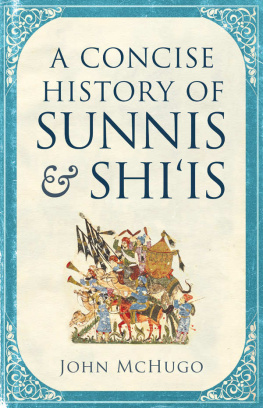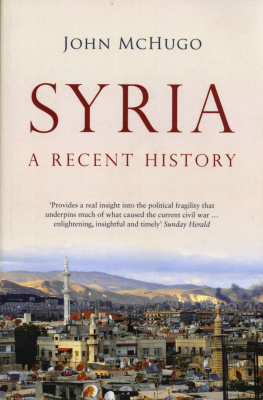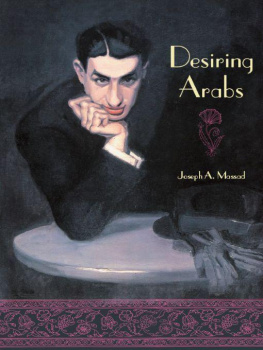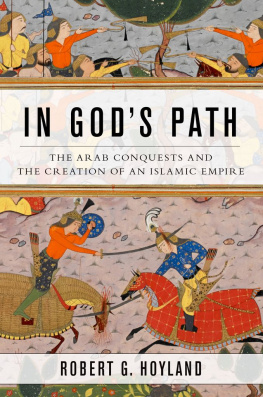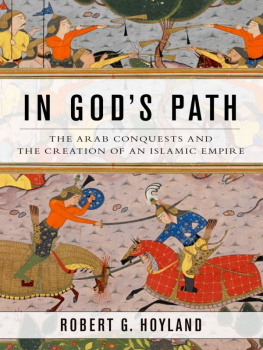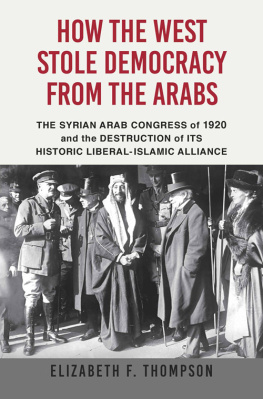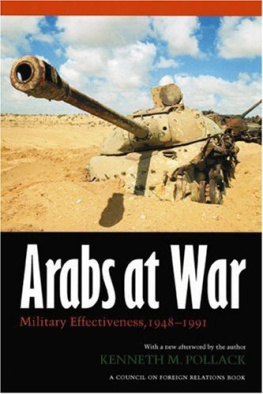A CONCISE HISTORY OF THE ARABS
A
CONCISE
HISTORY
OF THE
ARABS
John McHugo

Copyright 2013 by John McHugo
All rights reserved.
No part of this book may be reproduced, in any form, without written permission from the publisher.
Requests for permission to reproduce selections from this book should be mailed to: Permissions Department, The New Press, 38 Greene Street, New York, NY 10013.
First published in Great Britain by Saqi Books, London, 2013 Published in the United States by The New Press, New York, 2013 Distributed by Perseus Distribution
ISBN 978-1-59558-950-7 (e-book)
Library of Congress Cataloging-in-Publication data available.
The New Press publishes books that promote and enrich public discussion and understanding of the issues vital to our democracy and to a more equitable world. These books are made possible by the enthusiasm of our readers; the support of a committed group of donors, large and small; the collaboration of our many partners in the independent media and the not-for-profit sector; booksellers, who often hand-sell New Press books; librarians; and above all by our authors.
www.thenewpress.com
This book was set in Goudy Old Style
2 4 6 8 10 9 7 5 3 1
To Diana
CONTENTS
Banu (or Bani): sons or children, often part of the name of a tribe
Bey: an Ottoman title
Fellah (pl. fellahin): peasant
Fiqh: the process of reasoning in Islamic law, often translated as jurisprudence. The scholar or jurist who engages in the reasoning is a faqih
Fitna: civil disturbance or discord
Hadith: the sayings or traditions ascribed to the Prophet Muhammad
Halal: permissible for Muslims according to the teaching of Islam. In everyday speech it often approximates to moral but the concept is distinct. There may be nothing immoral as such about eating at noon during the fasting month of Ramadan, but for a Muslim it is not halal.
Haram: forbidden for Muslims according to the teaching of Islam. The word is not used for forbidden in other contexts. Parking your car in breach of traffic regulations may be forbidden, but it is not haram.
Hijra: emigration
ibaadaat: the religious practices in Islam by which God is worshipped
Ijtihad: independent judgement, especially in a legal or theological context
Imam: a religious leader. Depending on context, the word may mean no more than a prayer leader or preacher but for Shiites the word is used for the divinely inspired and infallible teacher whom all Muslims are bound to follow.
Jahiliyya: literally, the age of Ignorance, the age before the preaching of Islam.
Jihad: see the discussion of this term at the end of section III of
Majlis: a place, or occasion, of sitting. A majlis can also be a hall or large room where guests are received.
Mamluk: a slave soldier usually brought as a boy from a distant country and brought up to be a member of a military elite
Maslaha: literally, benefit or good. In Islamic law it means a principle whereby Sharia should be interpreted in the way most beneficial way to humanity.
Millet: a religious sect or denomination
Muaamalaat: acts of behaviour or conduct towards others
Mufti: a religious scholar of sufficient eminence to give opinions on questions of Islamic law which it is reasonable for other Muslims to decide to follow
Mujahid: literally, someone who struggles or someone who fights in a jihad but can also be used in a secular context
Mukhabarat: the intelligence or security services of a modern Arab state
Muwaatinoon: citizens or nationals of a country
Pasha: an Ottoman title, generally superior to a bey; also used in the Egyptian, Iraqi and Jordanian monarchies in the twentieth century
Rashidun: the first four caliphs, Abu Bakr, Umar, Uthman and Ali, who are accepted by Sunni Muslims
Salaf: ancestors, predecessors
Salafi: adjective from salaf; in the twentieth and twenty-first centuries the word is used to indicate a devout Muslim who believes Muslims should rigidly emulate the conduct of the Prophet and his companions down to the tiniest details of behaviour
Sharia: the religious, or canonical, law of Islam.
Shaykh: literally, old man. The term denotes respect and is used of a tribal or religious elder or leader. A man who learns the entire Quran by heart is automatically a shaykh whatever his age.
Shi'ite: a follower of Shiite Islam, the second largest Muslim sect
Shirk: polytheism, idolatry; the antithesis of tawheed
Sunna: habitual practice or custom, specifically that of the Prophet Muhammad which came to be regarded as legally binding precedent
Sunni: a follower of Sunni Islam, the largest Muslim sect
Taabioon: followers
Takfir: declaring another Muslim to have betrayed the faith by apostasy and therefore to be worthy of death
Tawheed: the affirmation of the oneness of God; the antithesis of shirk
Umma: community, especially (but not necessarily) the Community of Muslims
Velayat-e faqih: literally, government by the Sharia jurist. The teaching formulated by the Ayatollah Khomeini under which a supreme judicial authority will oversee the acts of the government and vet all legislation to ensure that it complies with Islam
Wasta: literally intermediary-ness. A colloquial expression used to refer to the reciprocal trading of favours up and down hierarchies of power, wealth and influence.
I
The upheavals now known as the Arab Spring cannot be understood unless they are put in the context of the long history of the Arabs. What are the origins of the confusions and complications that afflict our Western understanding of the Arab world? How did this distinction we constantly draw between East and West begin, and how valid is it? Whose fault is it that things so often went wrong? Will the Arab Spring exorcise any of the demons that have come between us? These are just some of the questions this book seeks to answer.
The Arab Spring found Arab autocrats complacent and in denial, despite their fearsome intelligence services with supposedly all-seeing eyes. It is therefore unsurprising that it caught European and American strategists, experts and commentators on the hop as they observed demonstrators in Arab countries calling for fair elections and human rights, the freedoms that we enjoy as a matter of course. But Europe and the USA had strategic interests to consider and cold calculations to make. As President Hosni Mubarak tottered in Egypt, there were fears about the Suez Canal. The price of oil became a worry once Libya descended into civil war, while Europeans feared uncontrolled immigration as thousands desperately took to the sea to escape from the turmoil. And what if the unrest eventually spread to Saudi Arabia, far and away the worlds largest oil exporter? Six Arab countries are among the top fifteen oil-exporting states, making the Arab region as a whole vital for the rest of the world. These were merely extra worries for policy-makers in the West, who already suffered headaches caused by the regions unresolved baggage. It was where the seeds of Islamist terrorism had germinated in the late twentieth century. Chaos and instability would give networks like al-Qaida the opportunity to reorganise and expand. There were also two major international issues which refused to go away: the unfinished business between Israelis and Arabs which had been a destabilising factor for decades, and the ambitions of non-Arab Iran to project its influence across the region.
Next page

